What we offer
LiNCHigher are dedicated to providing young people with the information, advice, and inspiration they need to make an informed decision regarding their Higher Education pathways. We believe that when everyone has equal access to education & training, our society and communities grow together.

We focus on
- Support – We support the needs of young people, their parents/carers and schools and colleges in making informed decisions about their future within Higher Education.
- Facilitate – We develop and facilitate activities and workshops in schools, colleges and community groups to help engage and inspire young people in thinking about their careers, and the various pathways in Higher Education available to them.
- Evaluate – We evaluate activities which provide the greatest impact to young people, understanding what works for young people and what barriers exist for them in their transition to Higher Education.
The LiNCHigher Team
Our team facilitate sessions in schools and colleges, organise and run events and provide support for trips to university and college campuses. We also work with parents and carers and the local community to ensure that young people across Lincolnshire are fully supported.
You can find out more about our team below:
LiNCHigher in action
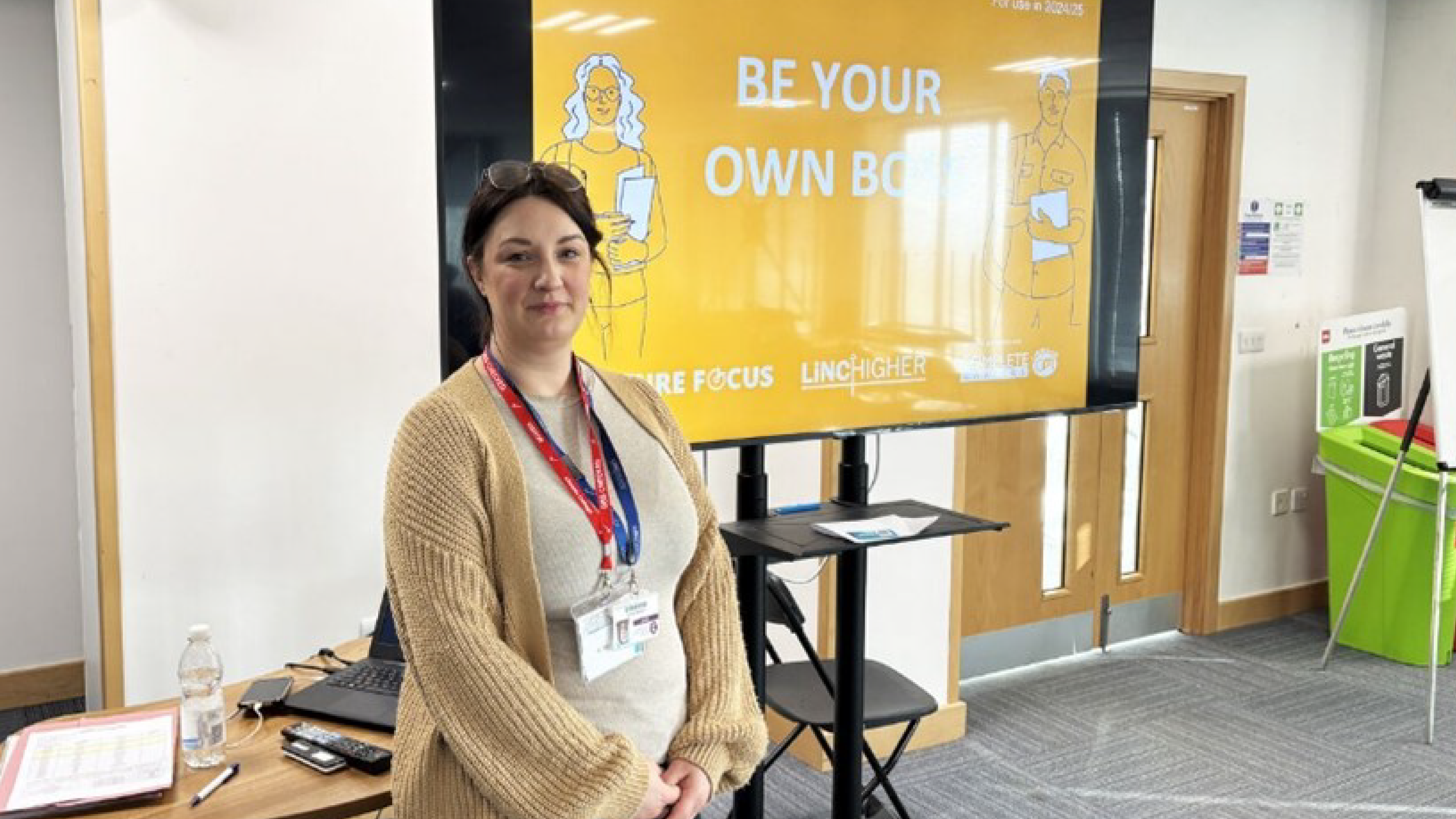
Kayleigh delivering our entrepreneurial 'Be Your Own Boss' session to Lincoln College students
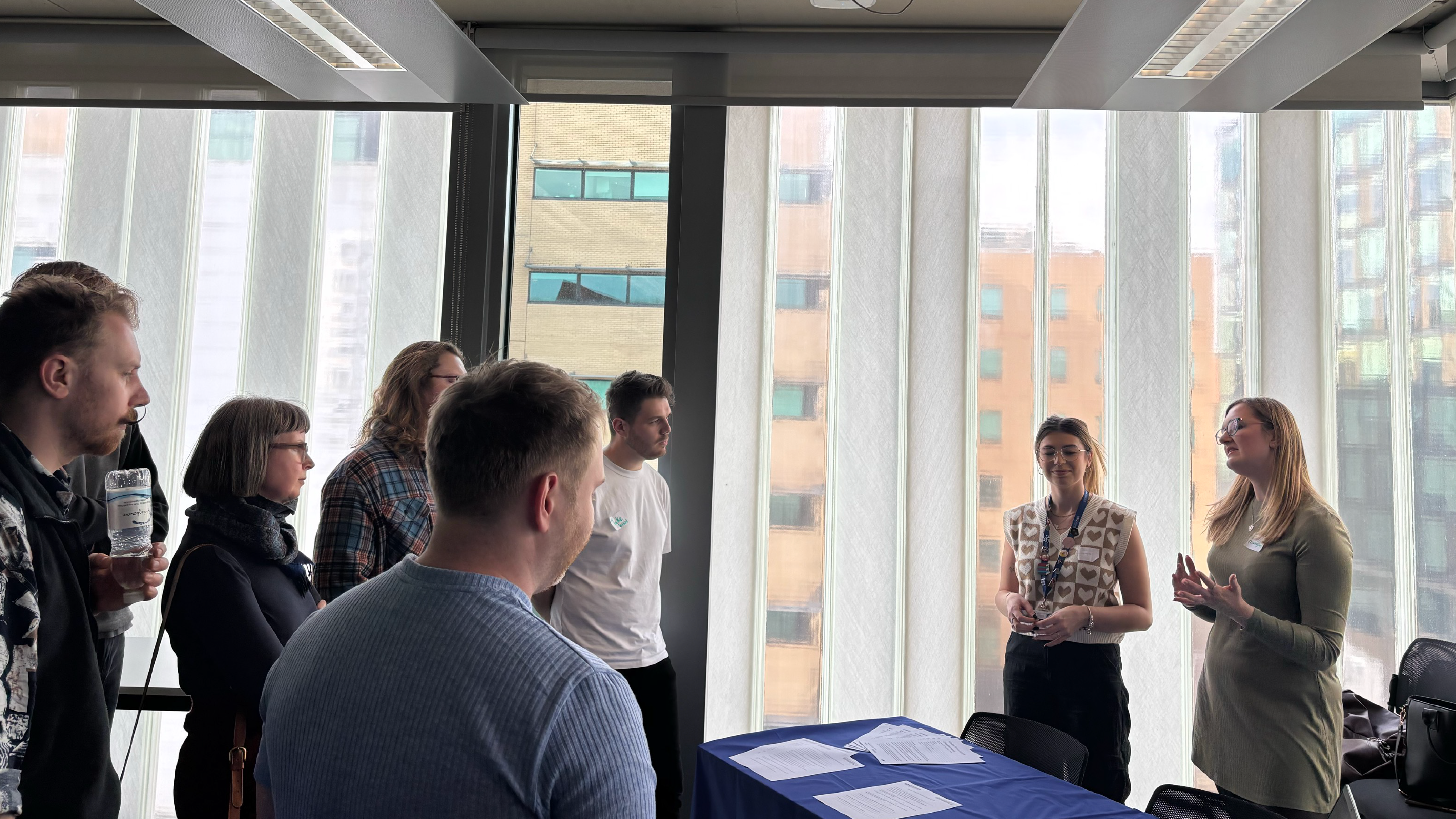
Jessica and Emily presenting findings from our Creative Forces Day events to our regional Uni Connect partners in Sheffield
Our Programme
Our programme is designed for students in Years 10-13 to improve progression to Higher Education. Our work, like all Uni Connect partnerships, is guided by the OfS, and so our remit adjusts each year with renewed guidance.
Our programme is designed for specific year groups, as well as those with the greatest barriers to Higher Education, and are delivered by our experienced education and outreach professionals from LiNCHigher, and from across our partners. We facilitate delivery in schools & colleges, both in person and virtually, through our resources, and the information you can find across our Future Focus website.
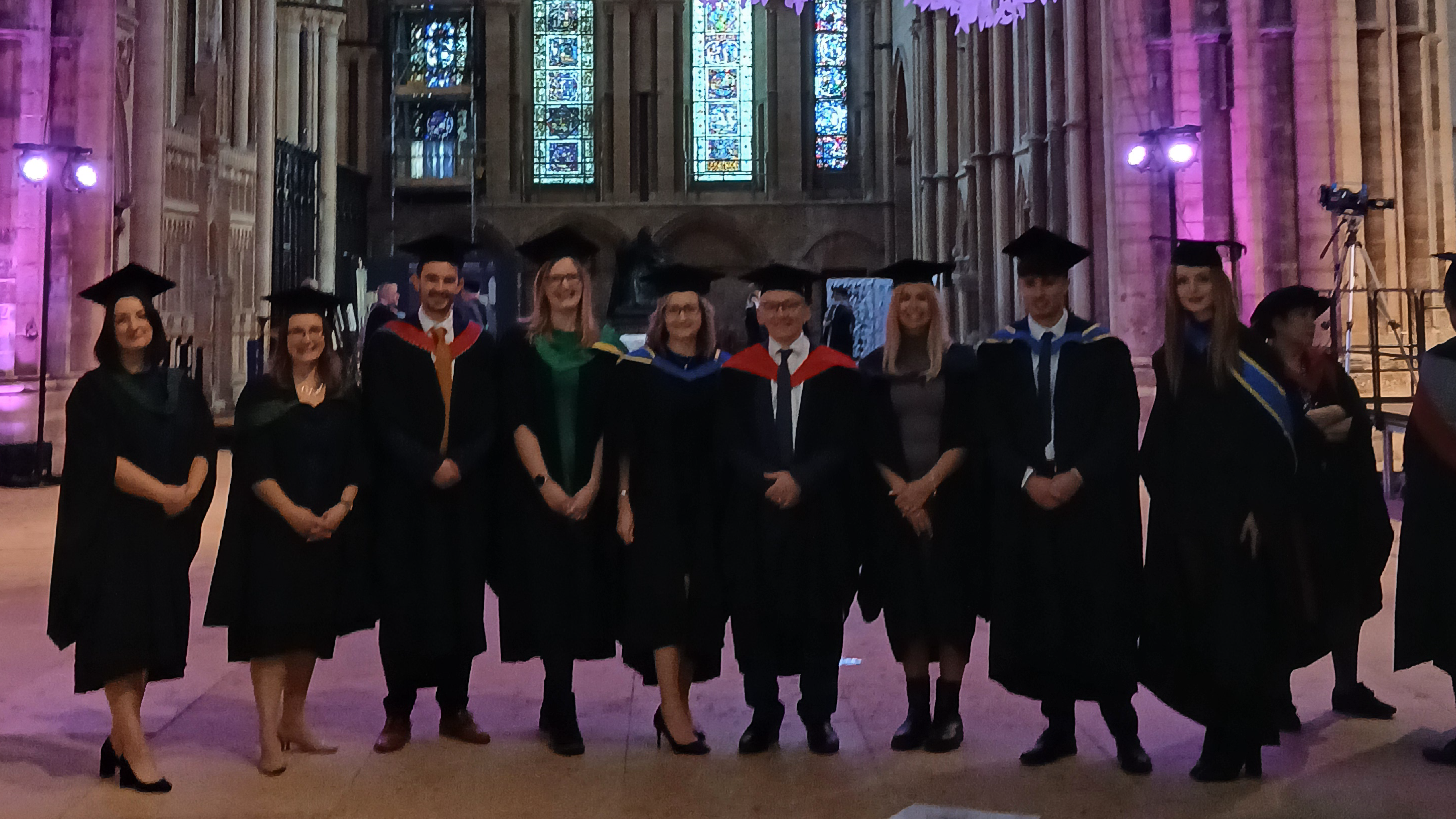
The LiNCHigher team attending the Lincoln Bishop University Matriculation at Lincoln Cathedral in October 2024
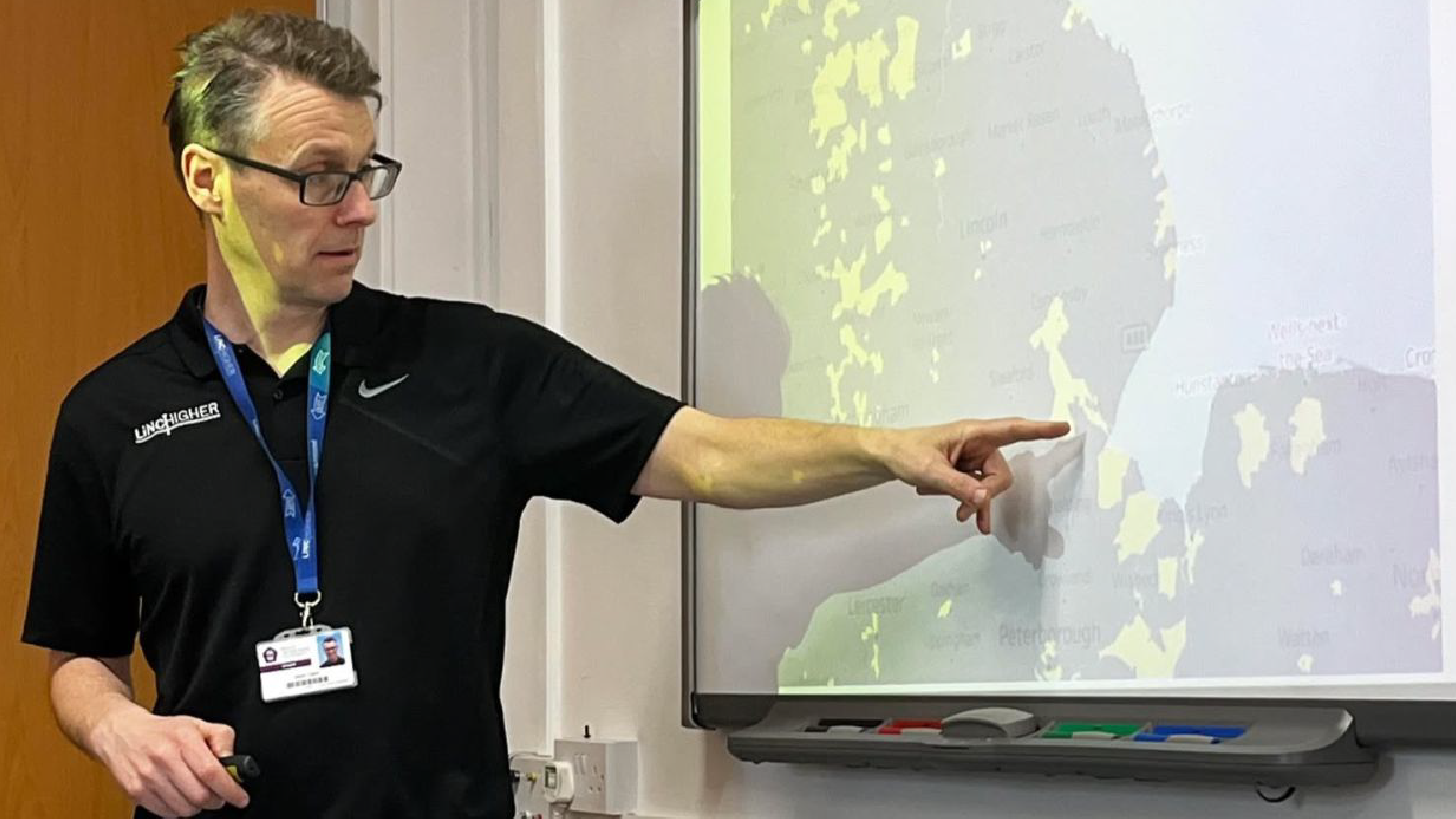
Jason speaking to Sociology students at Lincoln Bishop University about all things Uni Connect
Working with communities
Our programmes work to promote learning and social development for individuals and groups in the local area. All of these programmes and activities are developed in dialogue with communities and participants.
We provide training, education, and personal development opportunities to make a positive difference within the local area. We have developed relationships with several well established community organisations providing specific targeted support for underrepresented groups – including Care Experienced students, students from Armed Forces families and Gypsy, Roma and Traveller students. Our aims are very similar to the work that takes place in schools and colleges which is to support individuals to make well-informed decisions about their future education and to provide opportunities to reduce the gap in higher education participation between the most and least represented groups.
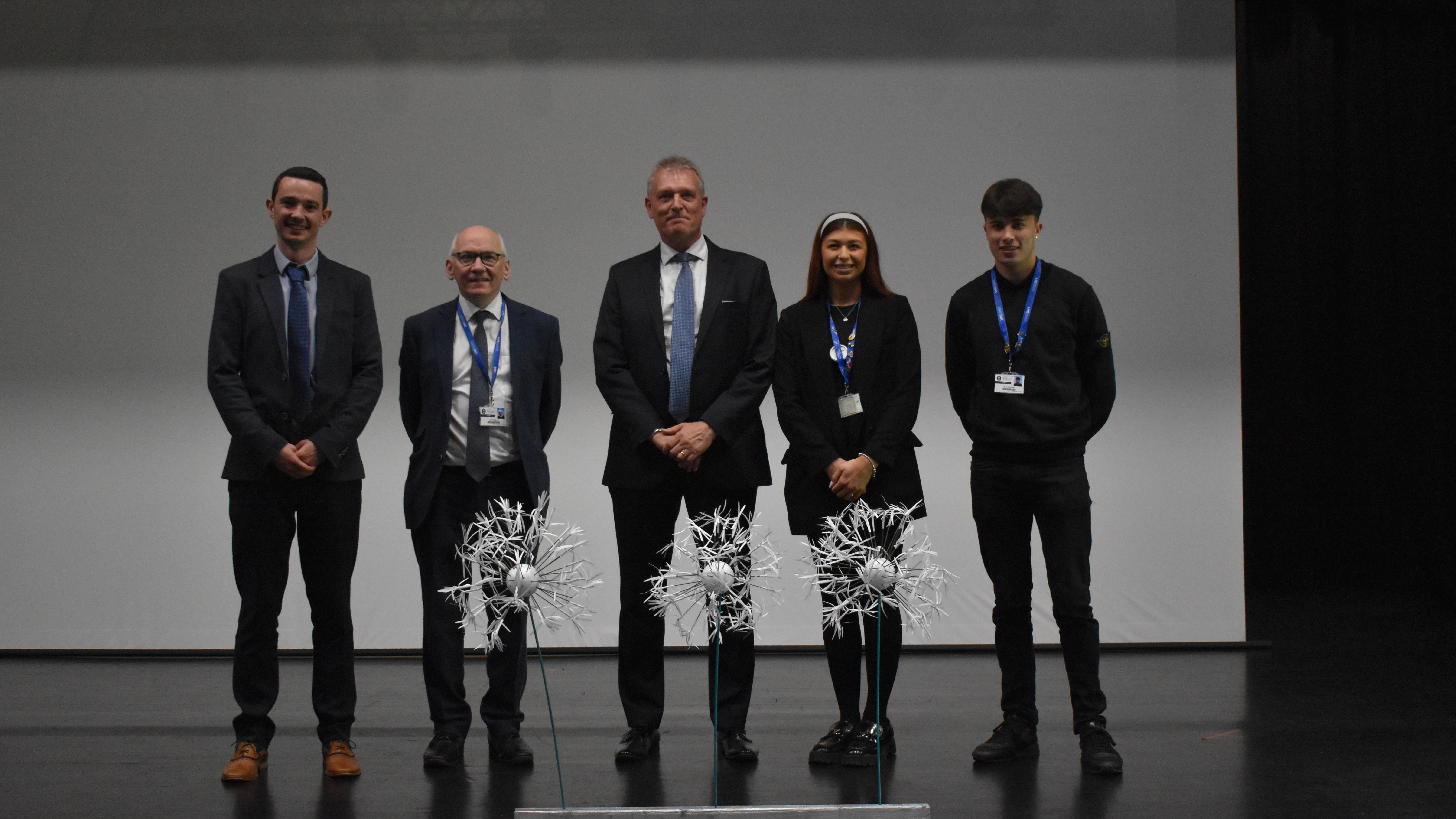
Shaun, John, Jess and Owen who worked on the Festival of Friends celebration
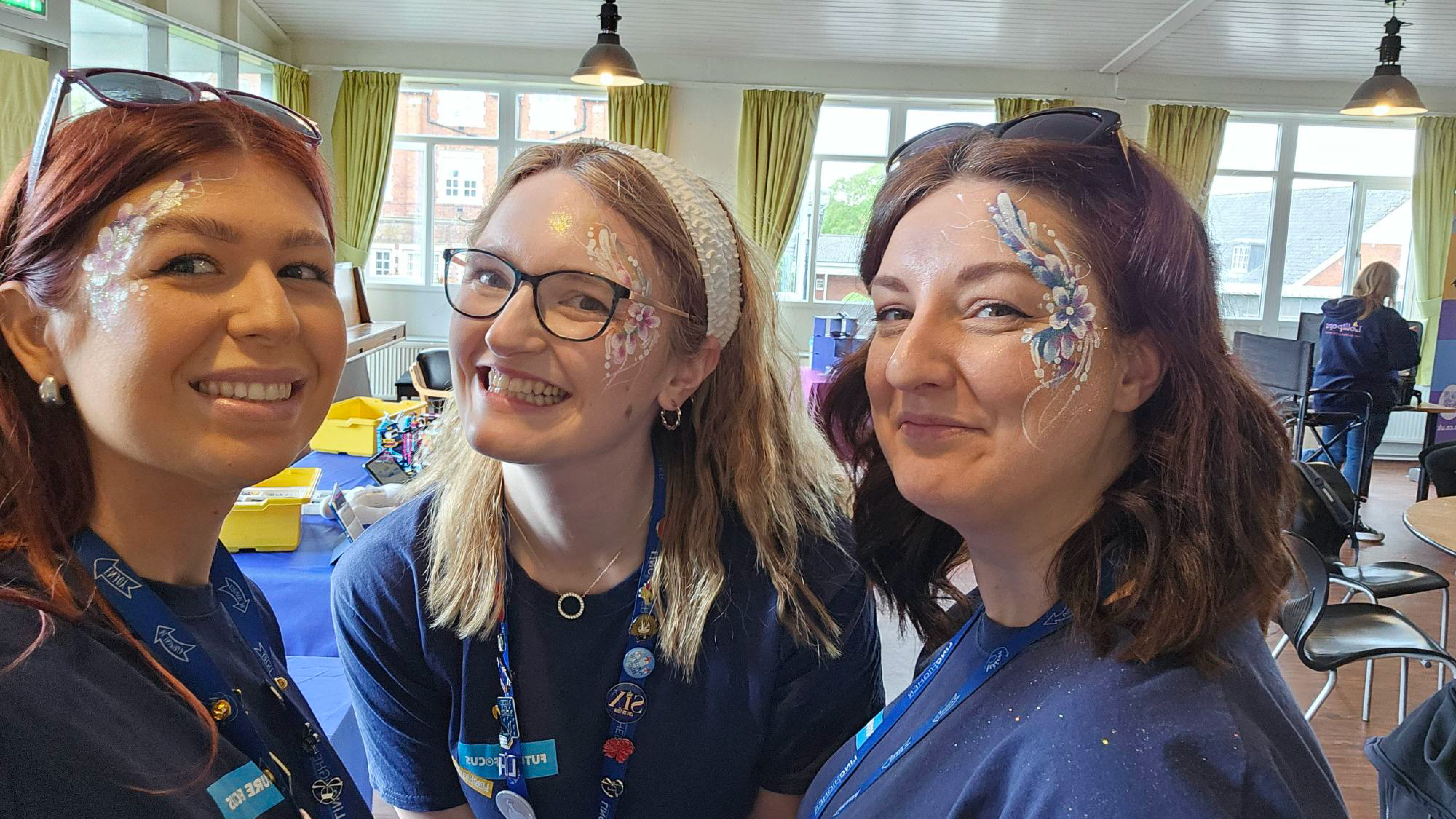
Jess, Emily and Kayleigh getting involved on the Young Carers Action Day

